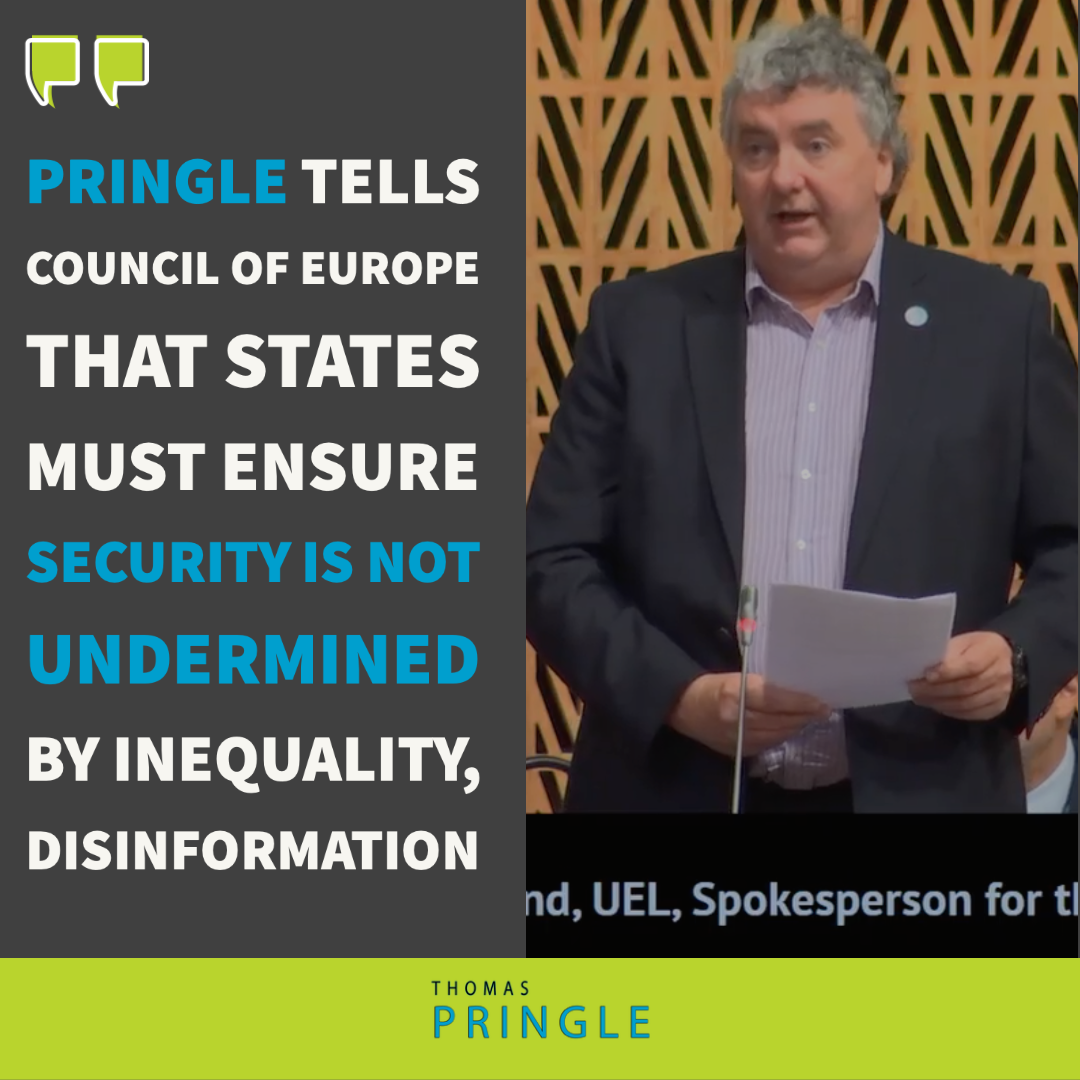- Pringle: We need a policy that recognises the importance of inshore fishing
- Pringle: Disabled people and carers face crisis of State neglect
- Pringle: Failed FF/FG housing policies forcing people to put their lives on hold
- Pringle welcomes Donegal council motion on Occupied Territories Bill: ‘We cannot stand by in the face of genocide’
Pringle tells Council of Europe that states must ensure security is not undermined by inequality, disinformation
- Updated: 21st June 2022

Independent TD for Donegal, Thomas Pringle, said Council of Europe states must be aware that threats to the security and the safety of all citizens do not always come from outside.
Deputy Pringle said: “I believe that the Council of Europe has a very important role to carry out and I would agree with the statement that states should renew their commitment to the values of democracy, human rights, and the rule of law.
“As a body we must be aware that threats to the security and the safety of all of our citizens do not always come from outside,” he said.
Deputy Pringle is part of the Irish delegation in Strasbourg, where he took part today in a parliamentary assembly debate on the report, Recent challenges to security in Europe: What role for the Council of Europe?
The deputy said: “Growing inequality is among one of the factors that lead to a feeling of disenchantment with democracy in Europe, as has been pointed to in the report.
“We all need to focus on our own states and the need to ensure that security is not undermined by inequality and attacks on human rights. There is also the issue of disinformation and the potential impact that it can have on populations.
“I believe that it is not only the actions of the Russian Federation and China that citizens need to be protected against, and I’m not sure if this organisation can address that either.
“But maybe having an educated and nuanced population where people can make their own minds up in relation to disinformation is the only way to ultimately protect everybody,” he said.
The deputy began his remarks by noting that with the conflict in Ukraine, the role of the council is very much the focus of attention now.
He said: “Indeed, sometimes one would be forgiven for thinking that this council has a military arm when listening to the recent debates on the situation in Ukraine. It is understandable from the members from Ukraine to a certain extent, but from some of the other members it is hard to take.
“I agree with the Secretary General, Ms Buric, when she said that the Council of Europe ‘is not a security organisation and let us be clear, it will not be the council alone that will stop the aggression that is taking place’.
“The question for the Council of Europe, as I see it, is whether the adjustments that are taking place will be focused on ‘democratic security’,” he said, adding that the meaning of the terms ‘democratic security’ and ‘deep/soft security’ must be considered.
Deputy Pringle said: “What I would see as bordering on military security and breaching the role of the Council of Europe could possibly be construed as OK by another member. There are enough warmongers around without having this organisation adding to them. The NATO parliamentary assembly is probably one that springs to mind.
“We need to be very careful in relation to working with them as their role may not be the furthering of peace, and we should not confuse that as being the same as what this organisation is working toward,” he said.



